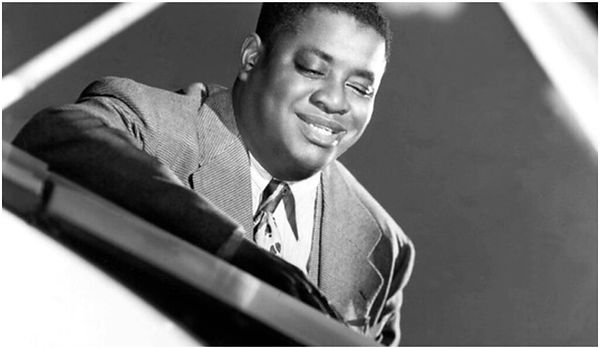top of page
The Musical Prodigy:
Art Tatum (1909 – 1956)

Tatum is regarded as one of the all-time great jazz pianists. His performances were praised for his technical prowess and inventiveness, setting a new bar for jazz piano proficiency. The musical genius was born in Toledo, Ohio. Tatum remembered entire piano rolls and absorbed music from the radio and Victrola despite being legally blind and mostly self-taught. He emerged as a fully developed musician in the 1930s, and his improvisational talent rapidly became legendary. He also began playing the piano at an early age, learning by ear and using his great recall and sense of pitch to help him. He developed a quick, accurate playing technique. He was also particularly sensitive to the intonation of the piano as a child, and he insisted on adjusting it regularly.
When people first heard Tatum on a record, they commonly mistook him for two piano players. Because accompanists struggled to keep up with his brilliant, volcanic musical ideas, he typically performed alone. He tried to recreate what he imagined in his head. In New York, he became a legend. Several pianists tried to imitate his talent, and others doubted their own abilities after hearing him. It wasn't uncommon to see classical pianist Vladimir Horowitz or composer George Gershwin sitting among the crowd. In 1927, Tatum began performing as ‘Arthur Tatum, Toledo's Blind Pianist' on Toledo radio station WSPD during interludes in Ellen Kay's shopping conversation program and soon had his own show. His radio show was rebroadcast countrywide between 1928 to 1929. He was modest, respectful, and a gentleman.

“Yes, I have a good Steinway. I got it about 9 years ago, since I have my house... that incidentally, was the first thing to come in the house, was the piano.” - Art Tatum.
“Tatum’s quick reflexes and boundless imagination kept his improvisations filled with fresh (and sometimes futuristic) ideas that put him way ahead of his contemporaries.”
- Scott Yanow (American jazz reviewer, historian, and author).
"His basic gifts, in other words, were world-class, and his gifts drove him to be the pianist he was. Tatum wove the virtuoso tradition and the jazz idiom together in his playing, from the early days of his development, and brought a previously unimagined level of playing into jazz.” - James Lester.
“I only play the piano, but tonight God is in the house.” - Fats Waller.
Art Tatum - The Art Of Jazz Piano - Documentary
Art Tatum - Yesterdays
Art Tatum - Tiger Rag
Art Tatum - Over the Rainbow (1953)
Art Tatum - Tea for Two (Audio + Sheet Music)
Read More About Art Tatum:
Art Tatum: A Talent Never to Be Duplicated
https://www.npr.org/templates/story/story.php?storyId=6434701
Art Tatum 1909–1956, Jazz Pianist, Blind
https://ukdhm.org/art-tatum-jazz-piianist-blind-1909-1956/
THE DOZENS: ART TATUM AT 100
https://web.archive.org/web/20160610152243/http://www.jazz.com/dozens/the-dozens-art-tatum-at-100
Art Tatum - "Too Marvelous for Words" - James Lester
https://jazzprofiles.blogspot.com/2018/06/art-tatum-too-marvelous-for-words-james.html
Influence and Art Tatum
https://syncopatedtimes.com/influence-and-art-tatum/
bottom of page